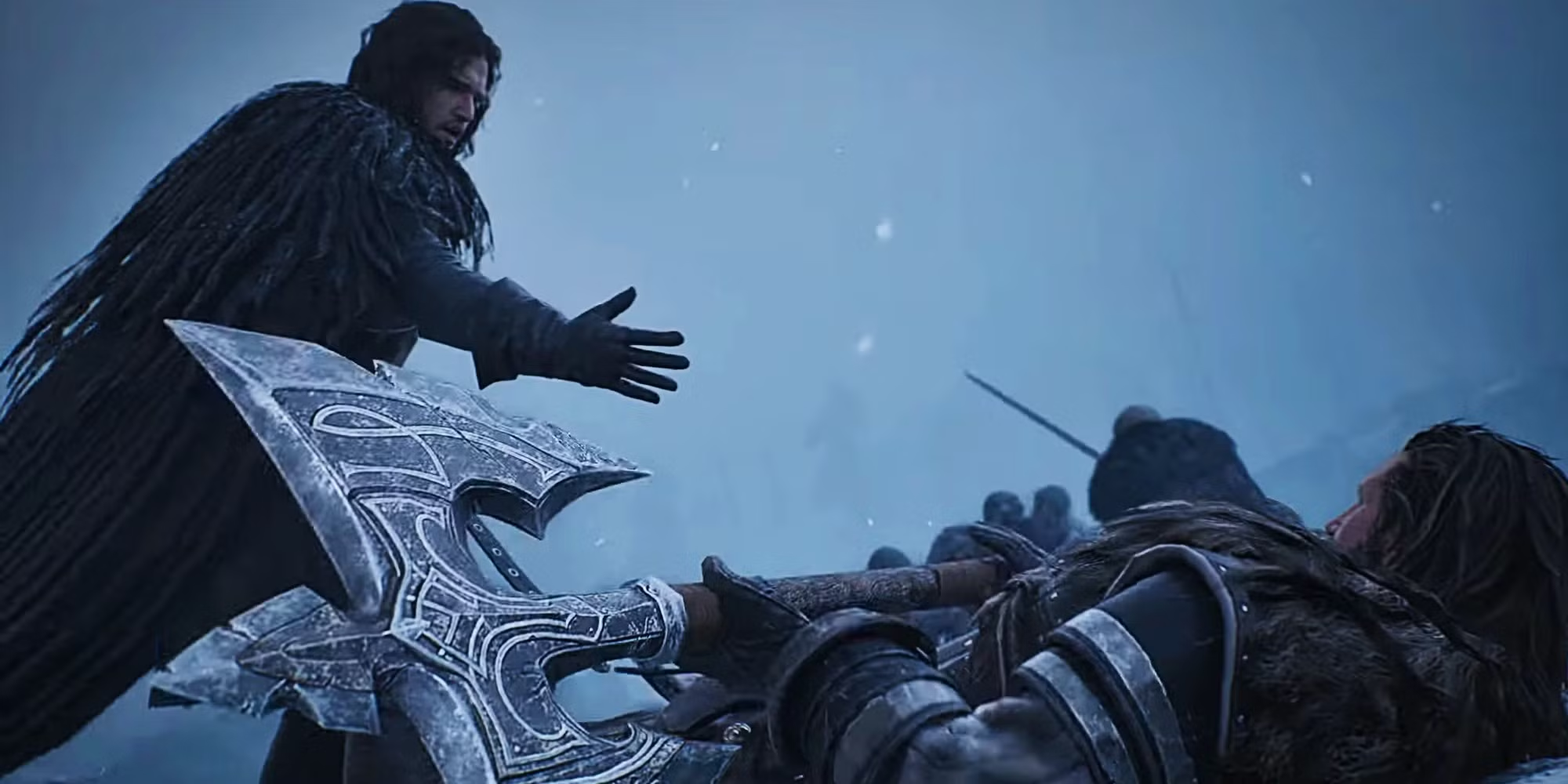Though the year is only a month old, one of its biggest shows has already been crowned: It’s The Witcher’s world now, and millions of Netflix subscribers are just living in it.
The fantasy series, like another very popular fantasy series that recently concluded on HBO, is based on a beloved franchise of novels. Those novels spurred a hugely popular video game series. And now with ex-Superman Henry Cavill embodying the titular character, the TV adaptation has amassed an even larger following since its debut in late December — to the tune of 76 million views, according to Netflix.
Those numbers make The Witcher one of the streaming platform’s biggest shows to date, and the biggest show in the world right now.
Perhaps the show’s greatest feat it that it achieved this kind of viewership amid a barrage of middling reviews and a mode of storytelling that isn’t exactly newbie-friendly. So how did The Witcher get to be so big, and where does it go from here? Let me try to explain.
1) What is The Witcher?
The simple answer is that The Witcher is a show on Netflix. But the story had a long history before Henry Cavill and company brought it into live-action life on the streaming platform.
The Witcher is based on a core series of eight fantasy novels by Polish writer Andrzej Sapkowski, published in the 1990s. Those books (which are now enjoying a resurgence on the Amazon charts) were eventually adapted into a 2001 Polish-language fantasy film, a subsequent Polish television series in 2002, and a hugely successful role-playing video game franchise beginning in 2007. But the film and television series were considered the poorest representations of Sapkowski’s novels, garnering some pretty terrible reviews.
Netflix’s English-language adaptation, helmed by Lauren Schmidt Hissrich (The Umbrella Academy), follows the same storyline as the series and its previous adaptations: Hated by society, a monster-hunting mutant named Geralt of Rivia (a.k.a. the Witcher) is destined to protect Ciri, a princess from the fallen kingdom of Cintra, and, along the way, find his soul mate, a sorceress named Yennefer of Vengerberg.
All eight of The Witcher’s season one episodes — each around an hour long — debuted on Netflix on December 20, 2019.
2) Is The Witcher good?
Critically speaking, television reviewers (including your writer) aren’t really big fans of the series. On Metacritic, it achieved an average score of 53, signaling that most reviewers found it to be middle-of-the-road. The positives, according to most reviewers, are the characters and the actors playing them, who did a fine job. But the series otherwise stalled with bloated storytelling and roundabout exposition.
“It’s as if D.B. Weiss and David Benioff, clearly out of steam after showrunning that final season of Game of Thrones, found a way to sell off their unused, undercooked ideas under the table to the powers that produce The Witcher,” I wrote in my review.
I stand by that assessment. The show has some fun stuff, but there’s just so much expository and trope-y fluff that it gets in its own way. But despite Witcher’s not-great reviews, Netflix is reporting that it’s one of the platform’s biggest shows with 76 million member households tuning in to watch (though this has come under debate since Netflix defines a viewer as someone who watches two minutes of content).
3) Why do viewers love The Witcher?
Even though critics didn’t love The Witcher, tens of millions of people, according to Netflix, watched it. The Witcher fits the pattern that we see in cinema, where blockbuster movies (see: Batman v Superman: Dawn of Justice) that get panned critically go on to make hundreds of millions of dollars at the box office.
Like those blockbusters, there’s a built-in fan base that’s been crafted for years and years. And that could explain the huge response.
Samit Sarkar, a colleague of mine at Vox’s sister site Polygon, explained to me that one of the reasons he liked the show was because of his investment in the video game series. “I don’t think I would’ve been nearly as inclined to check out the show without an existing interest/investment in that (very complicated) universe,” he told me.
Another factor in its popularity is that some fans of the high fantasy genre are looking for a show to replace Game of Thrones. According to HBO, Game of Thrones’ series finale drew 19.3 million viewers, not to mention that the show has, up until The Mandalorian’s release, had the honor of being the most pirated television show ever. Game of Thrones proved there’s an audience there for a medieval fantasy show, and with its end in 2019 and the first spinoff years away, those fans were left without their standby series.
Netflix and The Witcher’s marketing team leaned into this, with its trailers promising a once-in-a-lifetime fantasy epic. Its final trailer also has similar stylings to Game of Thrones, including an epic battle, sweeping landscape shots, and sigils:
The Witcher catered to fans going through Game of Thrones withdrawal. Further, because of GoT’s terrible and uneven final season, fans on forums like Reddit’s Freefolk have touted The Witcher as the antidote to Thrones’ awful final season.
But there’s also the fact that The Witcher is often just a silly show. Part of its magic is not that it’s some kind of epic narrative (the way it and Netflix sold itself), but rather that it’s more akin to a high-budget, Saturday morning adventure romp.
“I don’t know when we all decided that every fantasy show had to replicate Game of Thrones, but I love The Witcher specifically because it is not Game of Thrones,” The Verge’s Julia Alexander, a Witcher liker, told me. “It’s a monster-of-the-week show that stars hot people and has exquisite combat scenes. The Witcher is fun in a way that so many fantasy shows haven’t been for me. Now, that doesn’t make it a good show by any stretch of the imagination. The plot structure is weird, and the pacing is irrational, but I watched the entire thing twice in the span of a week.”
4) Does playing the game help you appreciate the show more?
I’ve never played the video game, but based on what Sarkar and other fans of the video game say, it seems that the video game is considered a better Witcher adaptation than the show. Playing the video game also helps mitigate the show’s constant need of exposition and redundant dialogue pattern of a secondary character explaining a monster, Geralt explaining more about the monster, Geralt killing the monster, and another character stepping in and explaining the implications of killing said monster. Knowing Witcher lore gives what seems like a lot of extraneous exposition more context, which is helpful when it comes to discerning which pieces of exposition are important and which ones aren’t.
Another element of the video game in which the show doesn’t disappoint is the fight scenes. A colleague’s wife asked me, “If your favorite part of the game is slicing people in half, is the show good for that too?”
To this I’d say an emphatic yes! Vladimir “Furdo” Furdik (a.k.a. Game of Thrones’ Night King) choreographed most of The Witcher’s intricate hand-to-hand fight scenes in which people are sliced and diced into human tartare. Furdo has a résumé filled with stunt work, including Skyfall and Thor: The Dark World.
The only scene that Furdo didn’t choreograph might actually be the show’s most impressive. Choreographer Wolfgang Stegemann, who previously worked with Cavill on Mission: Impossible — Fallout, created the scene. The one-take fight happens in the first episode when Geralt takes on a gang of henchmen in Blaviken, a country town where we first meet Geralt. Let’s have Henry Cavill explain the pure beauty of the fight himself:
All this is to say, if you enjoyed slicing people in half in the video game, The Witcher might be worth checking out for its fight scenes alone.

5) Why is the show’s timeline so confusing?
When reviewers were sent screeners for the show, one of the things we had to sign off on was not revealing that the show is nonlinear and employs the use of multiple timelines. The first episode is set in the present (where Cintra falls and Geralt is tasked with finding Cirie), but most of the action in each subsequent episode (save for the finale) takes place in the past, despite the show seeming like a sequential, quest-driven narrative.
The jury is mixed on whether the flashback storytelling device works, but the time-hopping was supposed to be a huge, revelatory twist — this twist was the reason the timeline spoiler reviewers signed off on it.
The problem with that twist is that this can be super confusing, especially when you are just getting to know all the characters. Sensing that confusion, Netflix created this really helpful timeline, which should help any viewers befuddled by all the time jumps:
6) Will there be a season two?
Yes, and I think it’ll be better than season one. Even though I wasn’t a big fan of the first season, I could see the show embracing its silliness and, with the exposition out of the way, getting better in its second season.
Cavill announced The Witcher had been picked up for a second season on January 10, 2020, explaining that he was starting to get back to the gym and begin training as preproduction for The Witcher season two was coming up:
No date for Witcher’s second season has been announced, but we’ll update when we hear official word from Netflix.
7) What is this “Toss a Coin to Your Witcher” song I keep hearing about?
Aside from the show itself, “Toss a Coin to Your Witcher” is The Witcher’s biggest cultural impact. “Toss a Coin to Your Witcher” is a song performed by Geralt’s bard Jaskier in the second episode of the show. The song encapsulates the relationship between Geralt and the people he protects: they give him money, he protects them. The song’s lyrics:
He wiped out your pest
Got kicked in his chest
He’s a friend of humanity
So give him the rest
As Vox’s Aja Romano pointed out, it’s a catchy song that has spurred popular remixes and various iterations, including three different “metal” covers of the song and the original soundtrack version, which all charted in the United Kingdom.
A personal favorite is this remix:
Romano talked to Charlie Harding, a songwriter and the co-host of Vox’s Switched on Pop podcast, to explain just what makes it so catchy. Harding told Romano that it’s a combination of syncopation and fantasy video game elements, but also supreme silliness.
“Not only that, but the lyrics are deliberately tongue-in-cheek, with lines like ‘he can’t be bleat’ (a goat-related pun) and ‘he thrust every elf far back on the shelf,’ a meta-joke that completely breaks the fourth wall,” Romano wrote.
But whether it’s ironic or unironic love, people love “Toss a Coin to Your Witcher” nonetheless. Some even love it more than the show itself.
“toss a coin to your witcher” rules but let’s be real the only thing THE WITCHER makes me want to do is replay SKYRIM
— karen han (@karenyhan) December 25, 2019




















![[Book Review] The Blade Itself (The First Law Trilogy) by Joe Abercrombie](https://bendthekneegot.com/wp-content/uploads/2018/01/1516047103_maxresdefault-218x150.jpg)
















